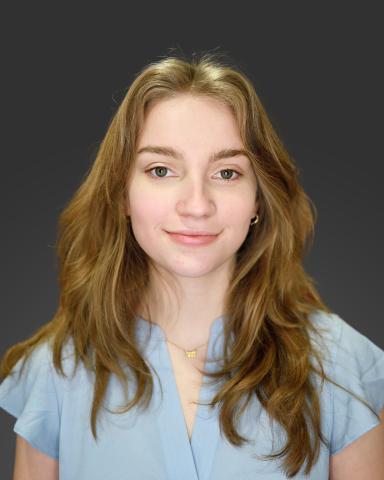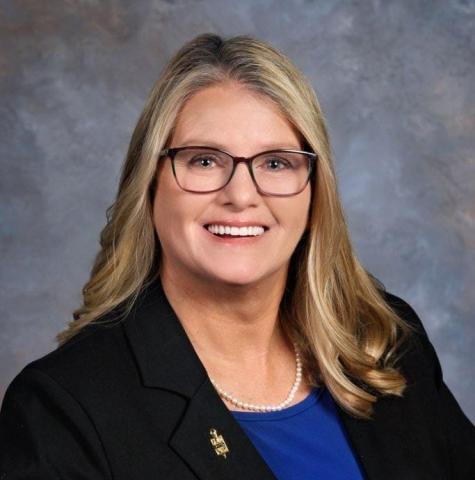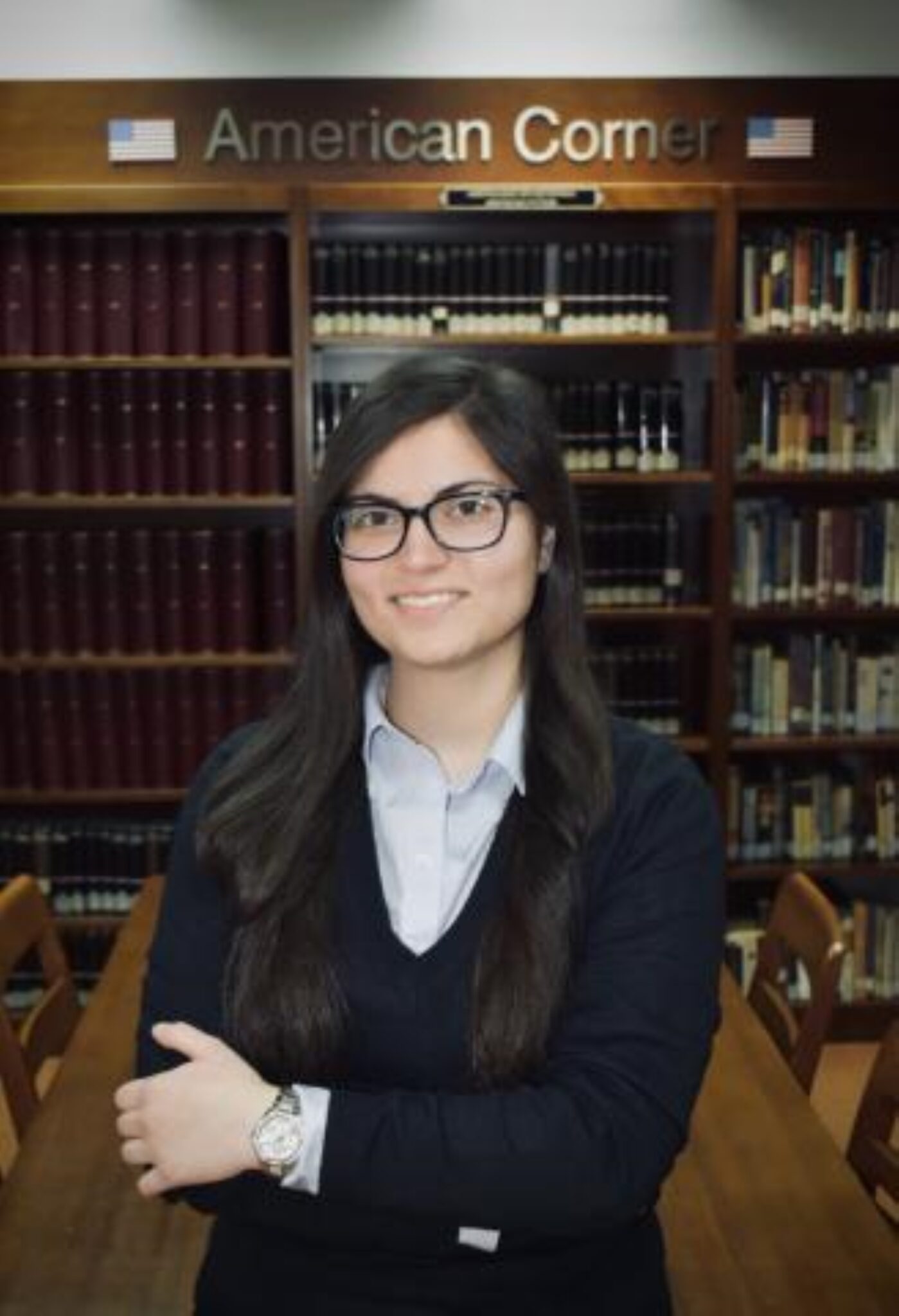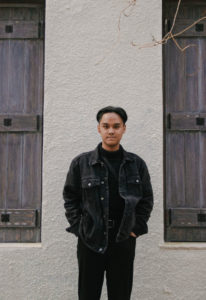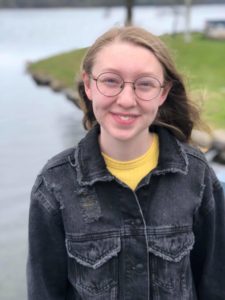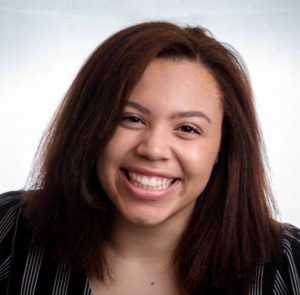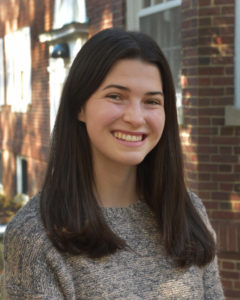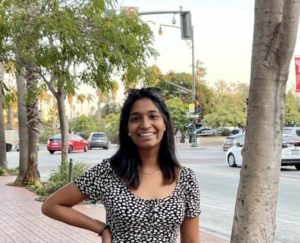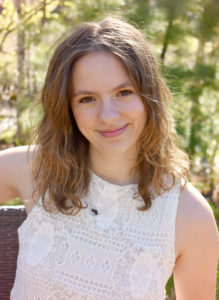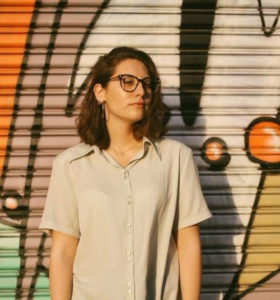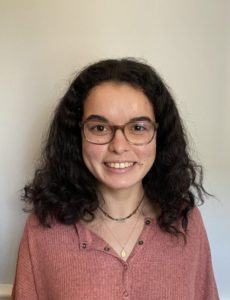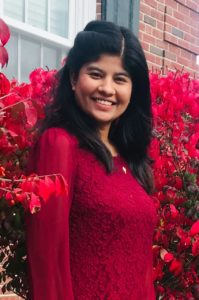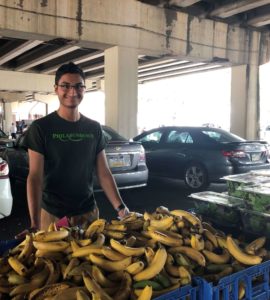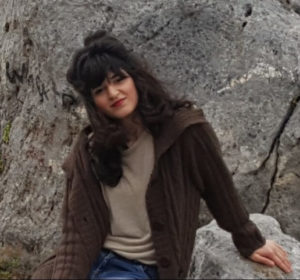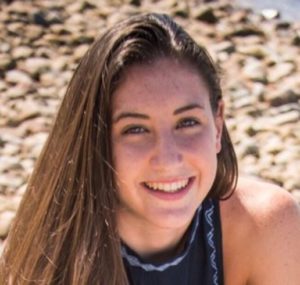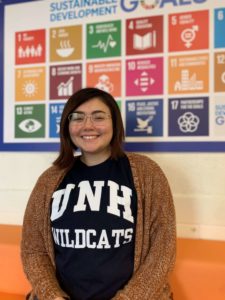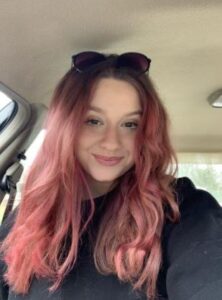 Alexandra LaBrake–University of New Hampshire (Main Campus)
Alexandra LaBrake–University of New Hampshire (Main Campus)
I was first exposed to the idea of social justice in my freshman year of college when I joined PrOVES. I quickly became immersed in the problems that were facing our world and what I could do to help. The following year, I attended Lead UNH, where I became even more aware of the problems that affected not only the people I knew in my communities, but people all over the world. As I’ve gotten older and thought about what I want to do with my future, I’ve become aware of the disparities in the health care system. As a hopeful future physician, I realize that there are many people who need health care who are unable to receive it. On campus, I am involved in the community service fraternity Alpha Phi Omega which focuses on service to the fraternity, community, and nation. I am also in the process of joining the World Health Partners organization which focuses on getting healthcare supplies to countries that are unable to afford these supplies. I also work at Wentworth Douglass Hospital where I have been learning all about healthcare and what more I can do to make change directly.
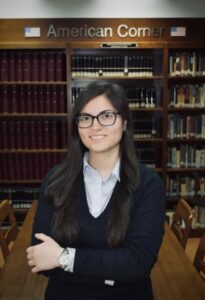 Alexandra Papatheodorou–Hellenic American University
Alexandra Papatheodorou–Hellenic American University
I was first exposed to volunteerism in my freshman year when I learned about our university’s Politis Program of Civic Engagement. I was immensely inspired by the program’s philosophy and values. My first assignment was at the Hellenic Antipoverty Network, where I helped translate testimonies of people who had experienced or were experiencing poverty. In the summer of 2021, I decided to volunteer at the COVID-19 vaccination center of my hometown’s hospital; my aim was to alleviate the workload of the healthcare workers and simultaneously help more citizens receive their vaccine faster. The Politis Program has inspired me not only to join the calls for volunteers but also to create my own projects. More specifically, this year, I started two projects. The first was run in November with the aim of further educating students and people outside our university about diabetes. In the second project, which ran in December, we spread the spirit of Christmas to homeless people in Athens by distributing food to them. There is something that I keep telling my fellow students: ‘’Take your own initiative, don’t wait for an organization to take action… You can improve the community, even by offering a simple service to others.”
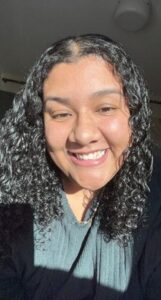 Andrea Rivera–Franklin Pierce University
Andrea Rivera–Franklin Pierce University
My interest in social justice began in high school. As a student attending a large, underfunded high school in the city, I worked closely with my teachers regarding contracts, funding, and the overall quality of public education. This work became a passion as I started to extend my activism outside the educational realm. In college, I have worked on campus with A.L.A.NA and the D.E.I Council and in the Monadnock region bringing to light issues of injustice specifically by working with a Martin Luther King Committee that aims to celebrate the impact his legacy has on social justice today. Since I have always had a passion for learning and growth through knowledge, I thrive on bringing difficult conversations to light and fostering a learning environment where my peers can have meaningful discussions and grow with each other. Public problems need passionate leaders committed to building diverse coalitions and striving to improve continually.
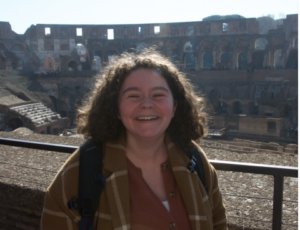 Audrey DellaBarba–Saint Anselm College
Audrey DellaBarba–Saint Anselm College
As someone who has been going to the polls with my mother since I was a kid, I’ve been exposed to the process and how important it was to exercise our right to vote and being educated on the issues that affect our community. But as I’ve gotten older, I realized how many of my peers feel like their voices don’t matter and that their votes would not impact an election. I knew I needed to do something so I began volunteering to write letters to unregistered voters in typically underrepresented communities. When the opportunity arose to teach high school students on local education policy and civic engagement, I immediately jumped at the chance. I’ve been working with high school students for over two years and youth civic engagement has become one of the greatest joys in my life. I had an internship in California this past summer working with high school students from all over the country to create community action plans and teach them about local public policy. Through these experiences, I have gained a deeper commitment to helping students realize how much of an impact they can have and how important they are to our democratic process.
 Corinne Cloutier–Plymouth State University
Corinne Cloutier–Plymouth State University
My older siblings inspired me to volunteer while at Plymouth State, and my first semester I volunteered for a week-long Social Action Trip at a no kill farm and sanctuary called Gita Nagari. This changed my life. I wanted to lead with gratitude and the knowledge my actions directly impact my communities. I made the decision to put my education on hold during the pandemic; during this time, I struggled to feel connected with my community and searched for meaningful ways to spend my time. I spent Friday afternoons volunteering at our local animal shelter and fell in love with serving even more. I’ve returned to campus and continue to learn about gratitude, leadership and giving back through my leadership opportunities. I believe people gain incredibly valuable experiences through community service, while also changing perspectives for the better. As a Sustainability Studies major, I hope to make a positive impact on the environment. I am honored to have the opportunity to work with like-minded community partners and know I have so much to learn. We have significant work to do for the environment, but collectively in with the community, I believe we can continue to make change.
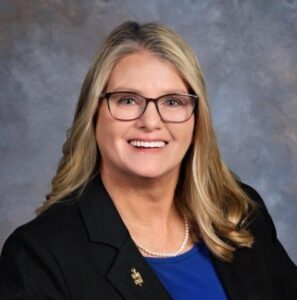 Kelly Pilotte–NHTI, Concord’s Community College
Kelly Pilotte–NHTI, Concord’s Community College
I am a nontraditional, service-oriented, lifelong learner. I served in the U.S. Marine Corps and am employed as a USPS mail carrier. Four years ago, I lost my son Sgt. Michael Boyd to a Fentanyl overdose. He served as a Marine during Operation Enduring Freedom in Afghanistan. In 2019, I established The Michael Stephen Boyd Memorial Foundation. As CEO, I mentor high school students who volunteer for the foundation. Each week, these volunteers and I bring clothing, food, and other necessities to the homeless population in my area. We advocate for ending the stigma of addiction and homelessness. I am dedicated to serving others, particularly those with substance use disorders and those who are unhoused. I graduated last year with a degree in Addiction Counseling and am continuing my education in non-profit business administration. My long-range goal is to run a recovery center. By sharing my experience, I hope to encourage others to find their own path in serving to those around them. The same people who work towards supporting the development and well-being of others are ultimately the ones who find success in their own leadership. These are the people who can and will change the world.
 Louis Fowler–Great Bay Community College
Louis Fowler–Great Bay Community College
I from a very young age was taught my base tenants by my mother. They were 1.) equality and care for all 2.) Growth will never be comfortable but will always be necessary and 3.) differences were what made us whole. This was the background music of my childhood and as I grew I realized how different I was. Coming out as bi and trans as a young adult changes how you view the world and often hardens people. I was not one of those individuals. I promised myself that I would never let the cold of the world freeze me and after a long period of thinking I realized where ignorance and misinformation was found and as a highschooler began to speak openly at staff meetings presenting my case to a room full of adults, preaching love acceptance and empathy for the people like me who were too weak to speak out. I find my strength in knowing I am keeping others from the negative experiences that I had in my life and every day since that point in time I strive a little harder to continue with the tenants my mother taught me.
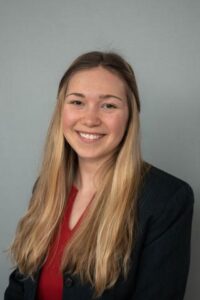 Samantha Palermo–Dartmouth College
Samantha Palermo–Dartmouth College
I believe strongly in the power of community. Because of this, my approach to social impact is firmly rooted in grassroots efforts to bring about positive change. My mission is to serve my community, day in and day out, and inspire others to do the same. I have organized card making events for residents of a local nursing home, spearheaded a gratitude campaign for Dartmouth’s essential workers, dedicated Saturday mornings to preventing local food waste and fighting hunger, translated a local nonprofit’s resources to Spanish, taught ESL lessons, mentored elementary-aged students, and served in countless other community-based roles. Community-based solutions are effective because people within a community know what other community members truly need. Community members know firsthand the nuances of a given problem, which means that community-based initiatives can address issues of inequality and inequity that may not be visible from the outside. Furthermore, focusing on making one’s community a better place – rather than the entire world – is manageable, which allows me to inspire others to take action and remain involved in social impact work. It takes a village to change the world, and I am dedicated to inspiring grassroots change – one community at a time.
